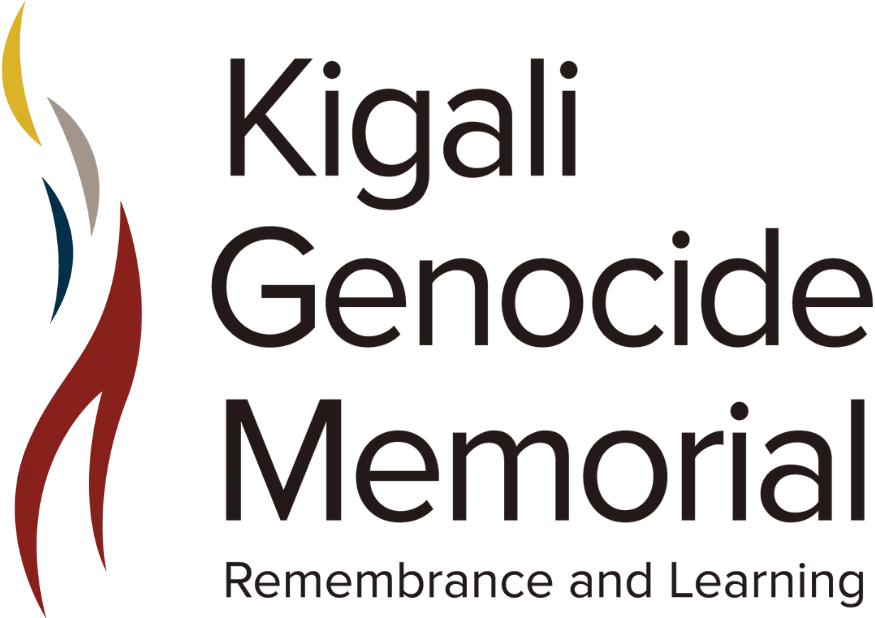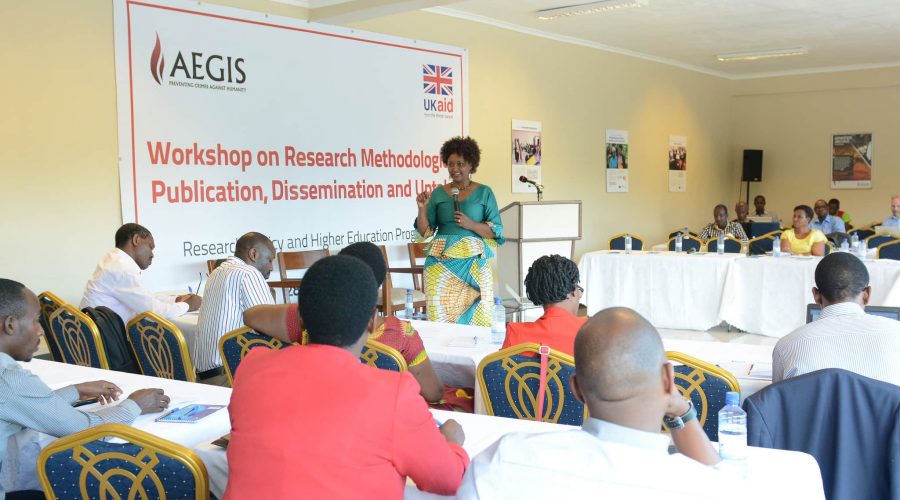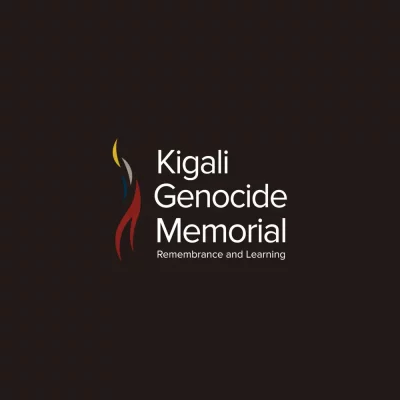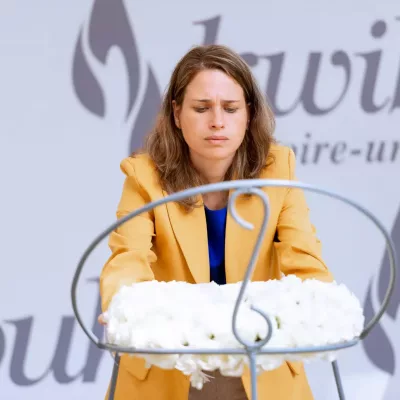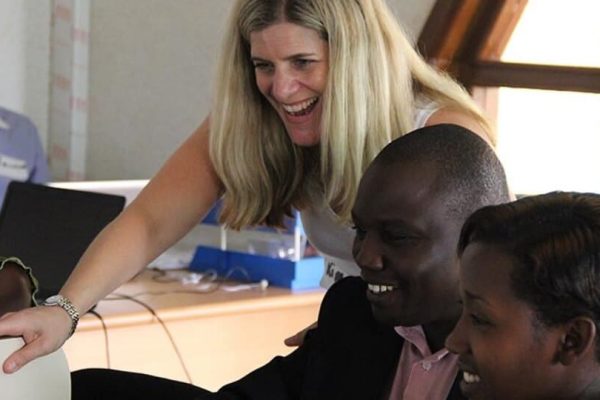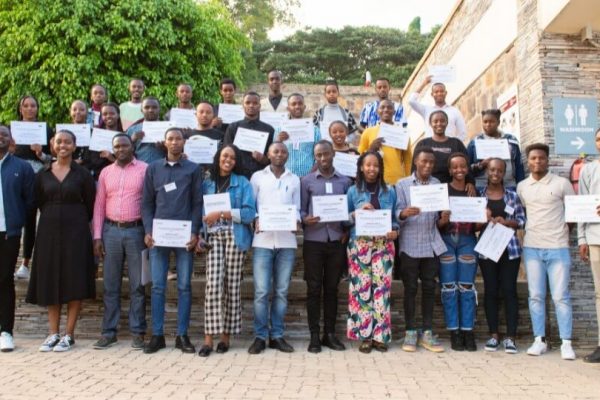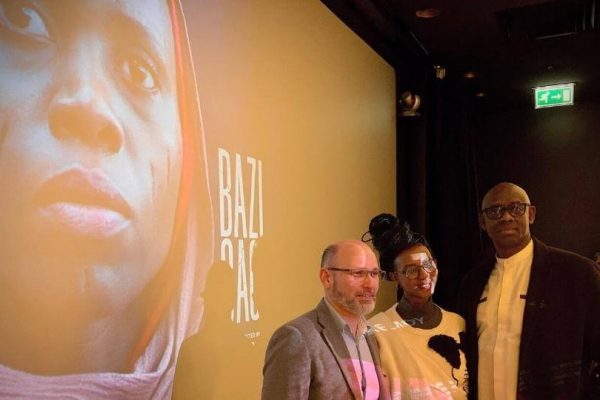Aegis Trust, which runs the Kigali Genocide Memorial, is holding a two-day capacity-building workshop to support Rwandan researchers to share their knowledge and experience with the world. Themed ‘Research Methodologies, Publication, Dissemination and Uptake’, the workshop is being attended by researchers, academics, policy-makers and practitioners and is taking place at the Kigali Genocide Memorial Peace School from 28-29 March 2017.
During the first day of the gathering, participants shared insights on methods that contribute to produce robust, reliable and informative research results. Dr James Smith, CEO of Aegis Trust, opened the workshop by emphasising how important researchers are for the work of Aegis but also other peace building stakeholders in Rwanda and around the world.
“As the medical world learned with cancer prevention, there is no ‘magic bullet’ for preventing atrocities – building peace is complex. All good practice and policy should be adapted and improved by evidence regarding effectiveness. The theories that underpin Aegis Trust’s peace education will benefit from the rigour of testing,” Dr Smith said. “The research community is needed not only to evaluate outcomes and the impact of peace education but also to inform peace building with new ideas and evidence based approaches,” he added.
The discussion topics included an analysis of research methods in the social sciences, using theories in research, and strategies for successful fieldwork. Great Lakes Programme Coordinator at Never Again Rwanda, Reverien Interayamahanga, gave an overview of approaches to research in social sciences including qualitative and quantitative methodologies. He underlined that research purposes are instrumental in knowing whether to use qualitative, quantitative, or mixed methods approaches.
Other presenters contributed by discussing research ethics and how best to engage with fieldwork in different settings. On identifying appropriate theories to be used for a given research, experienced researcher and former Director of Aegis’ Research, Policy and Higher Education programme, Dr. Phil Clark, said that the researcher has the independence to use applied or tested theory but also to build tailored theories fitting the specific community or phenomena being studied.
“Theory is not one-size-fits-all. Neither does it always come out of literature. It could involve day-to-day behaviour from people that are entirely involved in the phenomena being studied and include different variables,” Clark noted.
So far, the workshop has been a significant learning platform for participants who aspire to conduct impactful research in Rwanda. Dr Ibrahim Ndagijimana, a Rwandan researcher, commended the initiative:
“The workshop was fantastic. We gathered as researchers from different domains, and shared challenges and strategies that advance research,” Ibrahim said. “It has enriched us with information on research approaches in Rwanda,” he added.
The workshop, which is funded by the UK Government through the Department of International Development, is part of Aegis’ Research, Policy and Higher Education programme and continues today with a focus on publishing research for academic and non-academic users, research dissemination and uptake.
Photos
